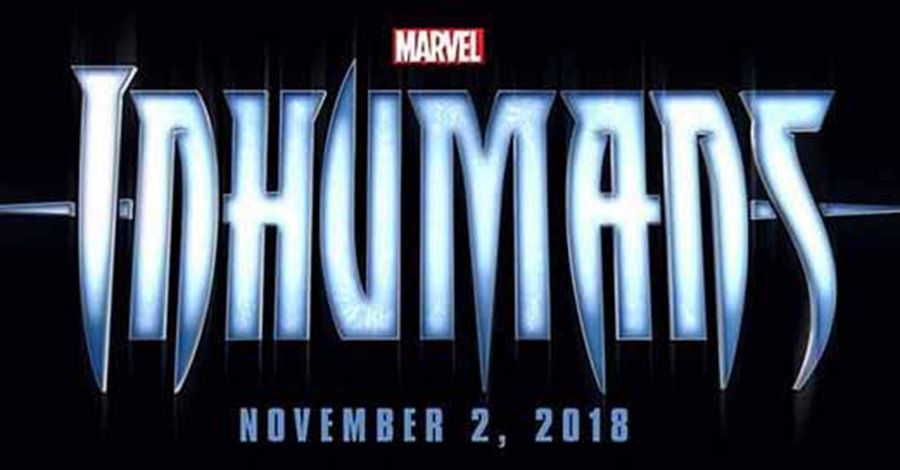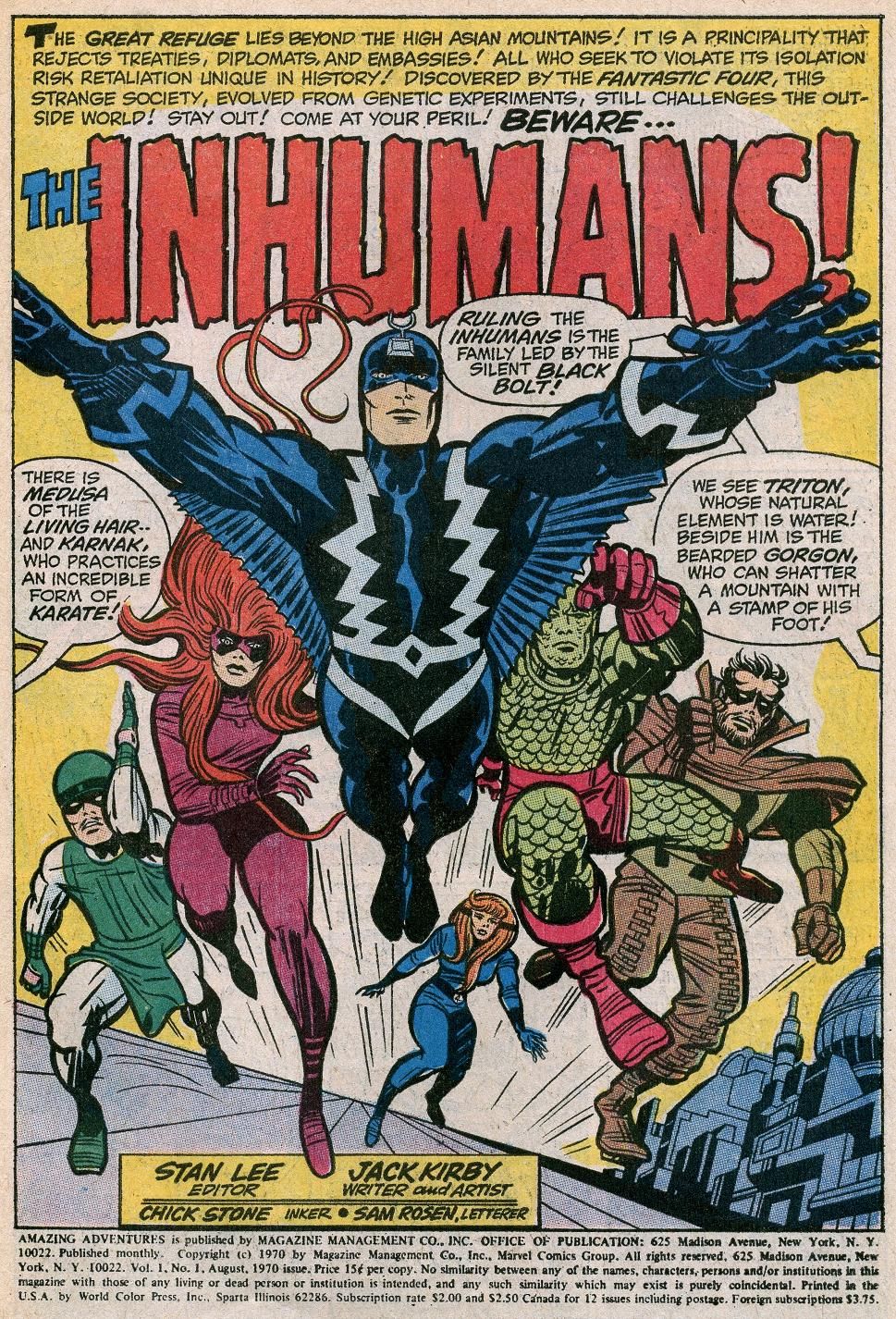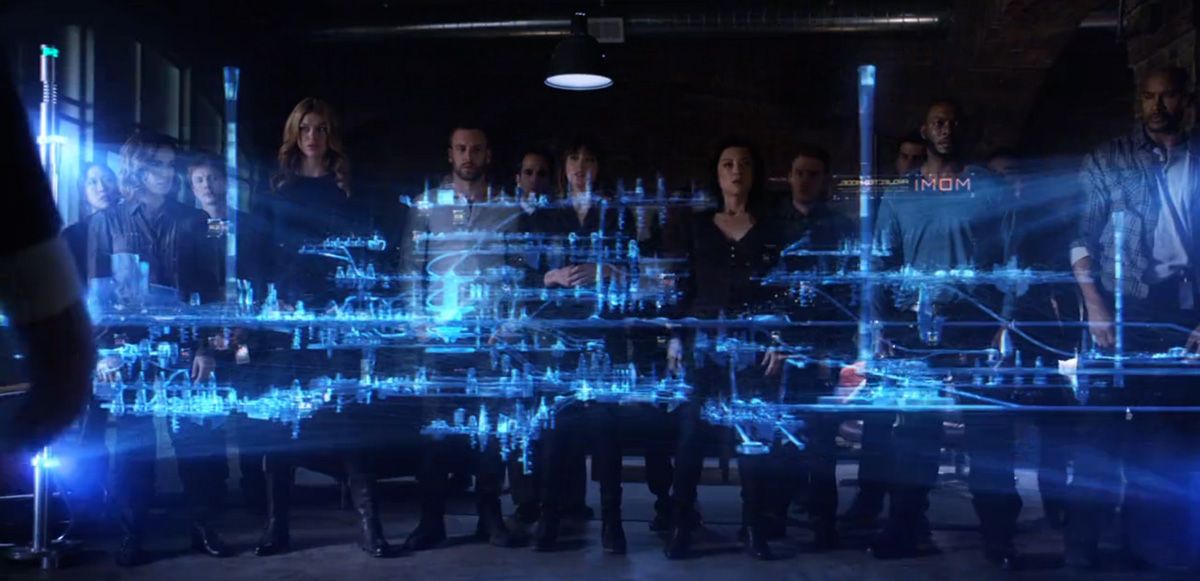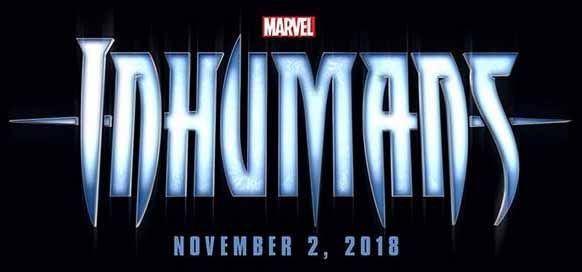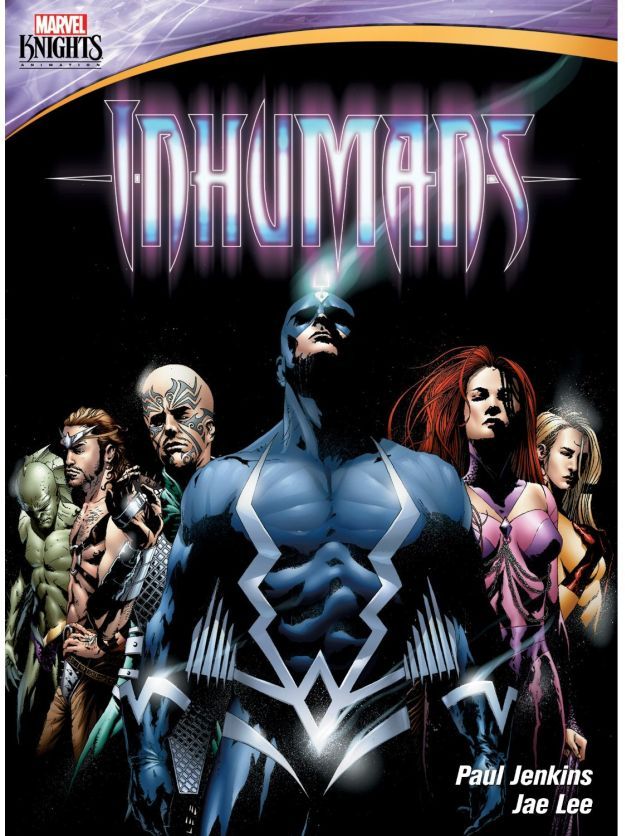On October 28, Marvel Studios President Kevin Feige announced nine new films including "Inhumans" in 2018 -- and, well, you can't say I didn't warn you! With Feige promising that we'll get a look at Inhumans sooner than we expected -- and the second season of "Marvel's Agents of S.H.I.E.L.D." paving the way -- it begs the question: What now? With a release date almost four years away, how will Marvel Studios bide its time when it appears to have decided to introduce the Inhuman element so soon?
Sworn to Secrecy
The Fantastic Four knew about the Inhumans before it was cool. In fact, the Fantastic Four were the first humans to ever encounter them. The Inhumans debuted in 1961, in "Fantastic Four" #45, and for a long time, the FF kept their existence hidden from the world; indeed, this secrecy was the plot of a few of Stan Lee and Jack Kirby's early arcs, including a story where Inhuman Royal Family member Triton was discovered by human sailors, and Black Bolt -- the Inhuman king -- moved the entire city in order to keep its existence out of the public eye. As such, the comic book Inhumans make an effort to stay closed off from the rest of the world.
It would make sense, then, that the cinematic Inhumans have the same isolationist policies -- and this is where S.H.I.E.L.D. steps in. Since Marvel Studios can't use the Fantastic Four due to Fox owning the movie rights to the characters, another team must make first contact, because the Inhumans sure as hell aren't going to reach out and introduce themselves if they can help it. With Coulson's team and Hydra rushing to a secret Kree city (which we'll assume to be Attilan), it looks as though S.H.I.E.L.D. will be the first protagonists to encounter the secret city and its inhabitants (more on that in a moment).
RELATED: Is "Marvel's Agents of SHIELD" Setting Up Inhumans in the MCU?
Here's how this could work in the Marvel Cinematic Universe's favor: S.H.I.E.L.D. is absolutely, unequivocally and unavoidably a spy agency. Secrets are their trade, their bread and butter. Agent Hunter blames Mockingbird's proficiency at deception as the reason for the dissolution of their marriage; Coulson and Agent May both flexed their stealth chops earlier this season by keeping Coulson's feverish alien writing spells from the rest of the team; and as of the first "Iron Man" film, the agency wasn't even a household name -- or, at least, not one that Pepper Potts or Tony Stark recognized, even though it had been around since WWII and Stark's own father helped found it. Circa the first episode of this season, we saw Agent Carter bury the Kree body's existence for decades within S.H.I.E.L.D.'s walls.
The bottom line is, S.H.I.E.L.D. deals in secrets. That makes "AoS" the perfect platform to introduce the Inhumans, if only for its unique narrative style. With an omniscient point of view, the show clues its audience in on secrets that aren't known to some of the MCU's biggest players -- the most notable being Coulson's second chance at life. S.H.I.E.L.D., as established in the MCU so far, operates on a need-to-know basis. If the Inhumans have no interest in humans, then S.H.I.E.L.D. would be the last agency to create widespread panic by revealing their existence to the world -- even if they intend to keep an eye on the situation. While they hold pertinence in the MCU at large, the events of "AoS" only affect the outside world when the organization chooses. If the Inhumans do their best to stay out of human affairs, and S.H.I.E.L.D. can keep any potential disturbances quiet, the Inhumans can maintain a peripheral existence to the MCU with S.H.I.E.L.D.'s assistance.
Ghost Town
That is, of course, if there are any Inhumans to be found in this secret city at all. As suggested to me directly after my epiphany, the discovery of a secret city does not necessarily equate the introduction of the Inhuman people. Like I mentioned earlier, Attilan has a funny habit of moving around, notably from the Himalayas to the dark side of the moon to the Hudson River in most recent comic continuity. Nevertheless, even if the Inhumans aren't in residence, that doesn't mean the race to the city is a total bust; not only will the S.H.I.E.L.D./Hydra collision course make for a climatic mid-season finale, but there are sure to be clues left behind from the Inhumans who once lived there -- the biggest being, perhaps, Skye's father, who seems to know his way around. Whether or not the Inhumans are in residence, Attilan -- or at least its last earthly location -- will give up a lot of answers even if as poses more questions -- and perhaps herald a change to the status quo.
C-C-Changes
With the next "S.H.I.E.L.D." episode a mere two weeks away, Executive Producer Maurissa Tancharoen promised, "After the midseason finale, things will never be the same again." As I mentioned in my previous theory, the Diviner has all the markings of Black Bolt's Terrigen Bomb. However, something on that scale may not suit the potentially low key nature of "S.H.I.E.L.D.'s" Inhumans. With only one Diviner at hand, then, perhaps it will operate as less of a Terrigen Bomb and more of a Terrigen Hand Grenade, affecting only those in close range -- a tease for bigger things to come. Nonetheless, the implications of a close-range Terrigen explosion would have the same serious ramifications throughout the MCU, and Skye is almost sure to be affected in this round, providing at least one example of Terrigen's transformative properties. The mid-season finale could, then, provide us with a taste of what's to come in the second half of the season and the subsequent film. Plausibly, a major Terrigenesis event is on its way to the screen -- whether small or large, we'll have to wait to see.
This Means War
If the Inhumans are introduced in "AoS," what does that mean for their upcoming movie? I believe this could go in several directions, the first being what I've already mentioned a few times already: the Inhumans could remain tangential to the MCU, having sparse interactions with S.H.I.E.L.D. only as necessary, such as to address urgent matters like Skye and her father. That way, the core group of Inhumans -- the Royal Family -- could snag some A-list actors without requiring that they appear on the television show at all. In other words, S.H.I.E.L.D.'s dealings with the Inhumans could stick to fringe characters, whose roles would expand over the series and possibly result in a film cameo -- much like the way Coulson's character grew to be the link between S.H.I.E.L.D. and all of the Phase One movies. This would contribute to the MCU's expanding mythos while allowing newcomers to the "Inhumans" film to enter the world without being bogged down by years of television backstory while those who watched the show would be rewarded. What's more, if Skye's father turns out to be an Inhuman mainstay like I've theorized previously, the film could have the character held or in prison for the crimes he committed before the events of "AoS." Looking at the track the show has taken so far, this seems to be the most viable option.
RELATED: Is "Marvel's Agents of SHIELD" About to Drop a Terrigen Bomb?
However, there's plenty of time between now and 2018 for more than just that -- like, say, nine other films. Of those films, the one that's gotten the most buzz is "Captain America 3: Civil War" based on its name alone, and for good reason. The "Civil War" comic series -- penned by Mark Millar and penciled by Steve McNiven -- pitted Captain America and Iron Man against each other over the Superhero Registration Act. With only a handful of Avengers in the current MCU, this doesn't look like the direction that the movie will go with the current roster -- unless, of course, there was a sudden influx of powered individuals. If "AoS," goes big and the Diviner affects humanity on a worldwide scale, the introduction of legislation like the SRA would become suddenly relevant; with the government already wary of S.H.I.E.L.D. after the Hydra reveal, it would most certainly want to take matters into its own hands. Although MCU Iron Man's personality doesn't sync up with government lackey, "Avengers 2: Age of Ultron" promises to change the status quo with its incredibly personal connection to Stark. Will newly-christened Inhumans become like mutants, hunted down because they're considered a threat to society? Will the Inhuman Royal Family intercede upon seeing their new people languish, kicking off the events of their own film? Could the Inhuman Royal Family arrive as a cameo in one of these other films? As we know little of the MCU post-"Age of Ultron," it's hard to say, but it's a viable path to follow.
Of course, both theories work under the assumption that the film versions of the Inhumans will lean on their comic book counterparts. With a multitude of other installments in the MCU before the "Inhumans" movie arrives, the Inhumans and their origin could alter drastically before they make their silver screen debut. While the characters could attain their recognizable names and attributes, the whole Inhuman structure could be overhauled for a newer, more contemporary feel. While I feel as though this isn't very likely, it should certainly be acknowledged as a real possibility.
Comic Relief
In sticking to its roots, "Inhumans" -- as a film -- could offer Marvel Studios an entirely new genre with which to play. Where "Guardians of the Galaxy" worked as a space opera and "Captain America 2: The Winter Soldier" was a super-powered political thriller, "Inhumans" is perfectly poised to be a feudalistic, "Game of Thrones" type of movie that has yet to be seen in the MCU. If Marvel Studios intends to stay with the Inhumans' comic book inspirations, there are two storylines in particular that seem to fit the adaptable bill: Paul Jenkins and Jae Lee's 12-issue "Inhumans" miniseries, and Charles Soule, Joe Madureira and Ryan Stegman's current "Inhuman" ongoing.
Jenkins and Lee's "Marvel Knights: Inhumans" dealt with the revelation of the Inhumans and Attilan to humanity -- and how humanity responded to them. Showing both the inner workings of the Inhuman Royal Family and the human media reaction, Jenkins and Lee's tale encompasses the Inhuman way of life while grounding it in the contemporary world. Their take is political in a way that only a feudalistic tale can be, illustrating how that this grinds against human democracy in a compelling story. With "Inhumans" new to the MCU, a similar take for the film would operate as an engaging introduction to this weird world. What's more, it would provide a viable excuse for the Inhumans' detachment from humanity so far, and showcase each member of the Royal Family.
As I've mentioned in previous articles, the comics and the MCU tend to reflect each other in order to drum up sales and streamline continuity, even if they never truly, seamlessly sync up. With Marvel Comics' push towards Inhumans in the recent "Infinity" and "Inhumanity" events, this seems to be the case once again. "Infinity" introduced the idea of a large-scale Terrigen Bomb that affected the entire world, which in turn provided terms like "NuHuman." Likewise, the "Inhuman" ongoing by Charles Soule, Joe Madureira and Ryan Stegman has relied heavily on several key NuHumans to guide new readers through the Inhumans' winding history. Rather than diving right into this alien society, the "Inhumans" film could borrow a page from this book and use NuHumans as an audience stand-in.
Now What?
Now, we wait and see. The midseason finale of "AoS" looks to hold the answers to some of these questions -- and perhaps more. Whether or not Inhumans pan out on "S.H.I.E.L.D.," they're definitely on their way to a screen near you... and we've got four years to speculate on what that means for the rest of the MCU.

